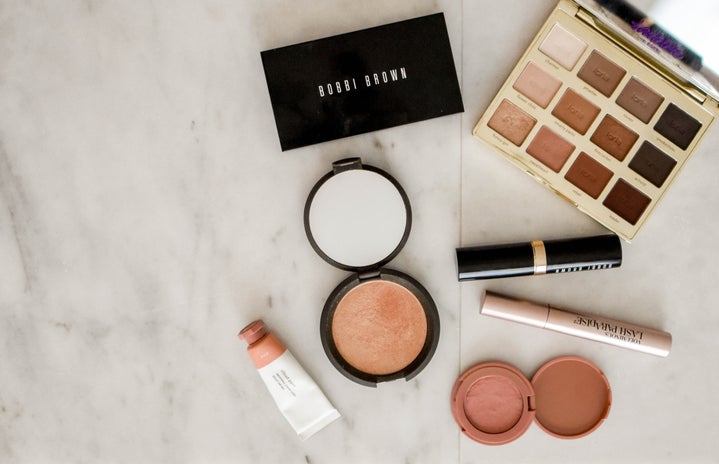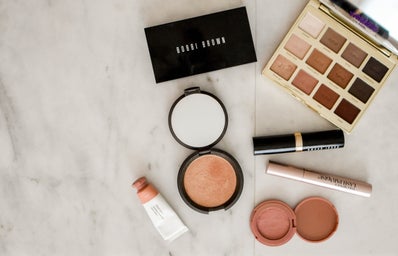(Photo Credit: https://www.flickr.com/photos/130283013@N07/24724109974)
In the most basic of terms, an essential oil is a highly concentrated plant extract. More didactically, essential oils are substances synthesized, stored and released by the plants. That is: they are completely formed by some of them and, to use the essential oils, extraction techniques such as cold press and different types of distillation are necessary. They can be extracted from leaves, roots, seeds, fruits, flowers and plant trunks. Despite the name, it is not always a greasy or oily liquid. Widely used in alternative medicine practices such as aromatherapy, essential oils have several virtues and numerous health benefits.
It’s thought that essential oils were already used thousands of years ago, as in the case of the practitioners of Ayurveda, an eastern medical philosophy that was developed in India thousands of years ago. It is rumored that they were incorporating essential oils into their healing potions since 3000 years BCE. Vedic literature lists over 700 substances including cinnamon, ginger, myrrh and sandalwood as effective for healing.
However, it is only from the 20th century that essential oils began to be scientifically studied for its medical properties. It can be used for a wide range of emotional and physical wellness applications. (Photo Credit:https://pixabay.com/pt/aroma-manjeric%C3%A3o-prepara%C3%A7%C3%A3o-natural-906137/)
They can also be used as single essential oils or in complex essential oil blends depending on the desired benefit. Let’s go over the basics:
Good Quality
First, let’s talk about quality. I cannot emphasize how much difference the use of a truly pure essential oil can cause. A few companies will use cheap plant matter and try to pass it off as an essential oil, and due to poor labeling it will still have the “pure” label. So what to do? Check the ingredients! The label should say the common name (ex: orange) and the latin name (ex: Citrus Sinensis) of whatever plant you’re using, since there can be several varieties of the same plant. For example, Melaleuca (tea tree) has over 300 recognised species, but only two are commonly used for making essential oils: Melaleuca alternifolia and Melaleuca cajuputi.
Common Uses
-
Diffusion & Inhalation
One of the best and most well-known uses for essential oils is the fastest way of getting them into your bloodstream, where they start to work their magic. The history of essential oil diffusers can be traced back with the history of aromatherapy, an alternative treatment that seeks to cure ailments by inhaling their aroma. Basically, diffuser help enhance any environment by filling the air with plant essences. If you’re going to inhale it, be careful to only use two or three drops of essential oil mixed with water.
-
Topically
Placing essential oils directly on the skin is a very common way to get their benefits. Some essential oils can be used undiluted, while some require a dilution ratio of 5 drops with tablespoon of a carrier oil (a base oil which is used to help dilute the essential oil, some common carrier oils are coconut oil, almond oil, grape seed oil and rosehip oil, but there are many more which can also be used). You can also use it for massages, by mixing around 50 drops it with 100mL of some carrier oil and baths, making sure to add 10 drops every two liters of water.
-
Ingestion
Some people also ingest essential oils. Instead of consuming pure, look for a version of the desired oil in gelatinous capsules or ask to do this in a compounding pharmacies.
Most Used Essences
-
For sleep: Lavender, Chamomile, Sage or Orange
-
For mental energy and anxiety/depression: Lemon, Basil, Peppermint, Rosemary or Grapefruit
-
For menstrual cramps: Cinnamon, Clove, Rose, Chamomile and Lavender
-
For stress relief: Lavender, Sage, Geranium, Cedarwood or Ylang Ylang
-
For repelling insects: Lemongrass, Tea Tree, Thyme, Eucalyptus or Citronell
-
For immunity or Cold/Flu: Lemon, Lime, Peppermint, Rosemary, Lavender and Eucalyptus
-
For allergy: Peppermint, Lemon or Lavender
-
For acne: Eucalyptus, Tea tree, Lavender and Sage
Lastly: do not forget that none of this replaces a trip to the doctor, essential oils serve only as complementary treatment.
Article: Catalina de Vera
Edition: Isabelle Caldeira


